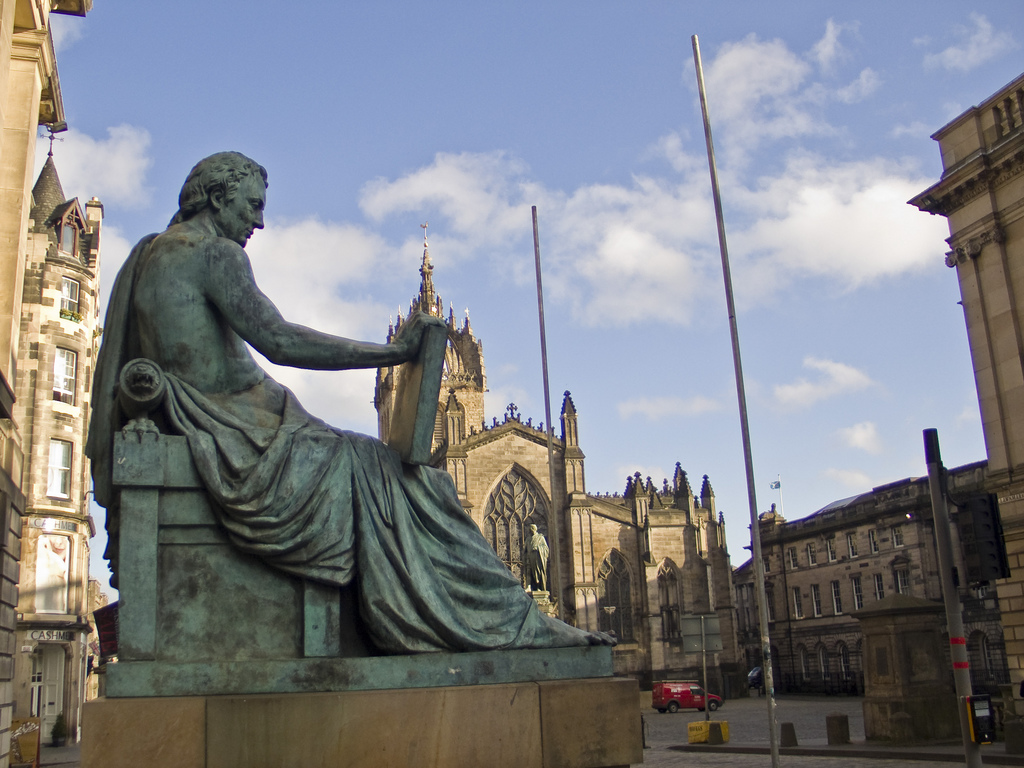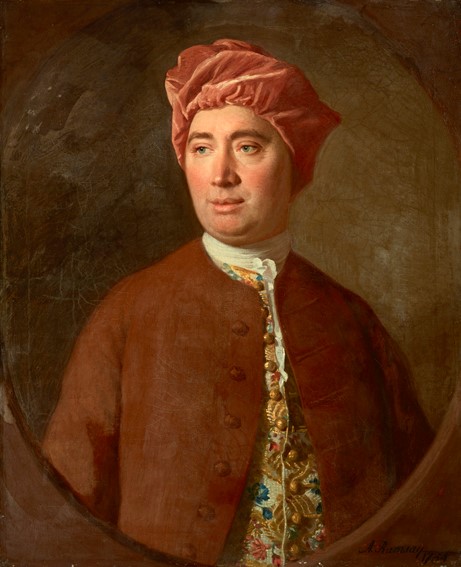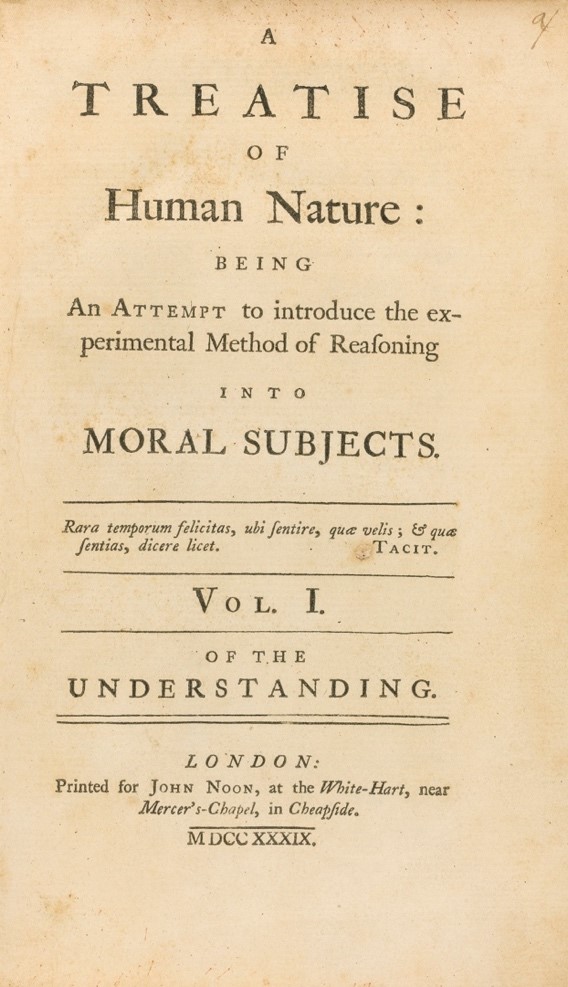
Royal Bank of Scotland, Bank Street
Photograph by Rick Drum, Wikimedia (CC-BY-SA)
The Bank of Scotland
The Scottish Enlightenment engendered a flourishing of the Scottish economy, informed in particular by the founder of free market economic theory, Adam Smith. To support this, the banking system also developed. The Bank of Scotland was founded in 1695. A new head office was designed by Robert Reid and Richard Crichton, pupils of Robert Adam, a leader of the neo-classical revival in Great Britain from 1760. The building was a detached Georgian-style villa, completed in August 1806. You will see the bank, modified extensively in the latter part of the 19th. century as you look left at the corner of the High Street and Bank Street. The building also houses the Museum on the Mound, which documents the history of money with exhibits including Scotland's oldest banknote.

Alexander Stoddart's statue of David Hume on the Royal Mile in Edinburgh
Photograph by Richard Barret-Small, Flickr (CC-BY)

Photograph of portrait of David Hume by Allan Ramsay, 1754
Edinburgh, Scottish National Portrait Gallery, (Public domain, via Wikimedia Commons)

Cover page of David Hume’s A Treatise of Human Nature (Public domain, via Wikimedia Commons)
A few steps further down the High Street on the left you will see a statue of David Hume (1711 -1776) completed in 1995 by sculptor Sandy Stoddart. Isaiah Berlin opined of Hume that "No man has influenced the history of philosophy to a deeper or more disturbing degree." While James Hutchison Stirling stated that "Hume is our Politics, Hume is our Trade, Hume is our Philosophy, Hume is our Religion." The philosopher's thinking is encapsulated in the "is–ought problem", also known as Hume's guillotine, which questions the fact that many writers make claims about what ought to be, based on statements about what is. In contrast Hume postulated a significant difference between positive statements (about what is) and prescriptive statements (about what ought to be, arguing that ought statements, and other supposed moral knowledge, are not rational.
For example:
- Sam is stealing money from work.
2. Losing money by theft causes harm to Sam's employers.
3. (One ought to not cause harm to his employers.)
4. Therefore, Sam ought to stop stealing money from work.
Statements 3 and 4 are "ought" statements, for which, according to Hume, no premise exists except by some moral code, which by definition is a human invention. In his Treatise of Human Nature (1738-1740), Hume promoted the novel idea of basing philosophy on an empirical investigation of human nature.


